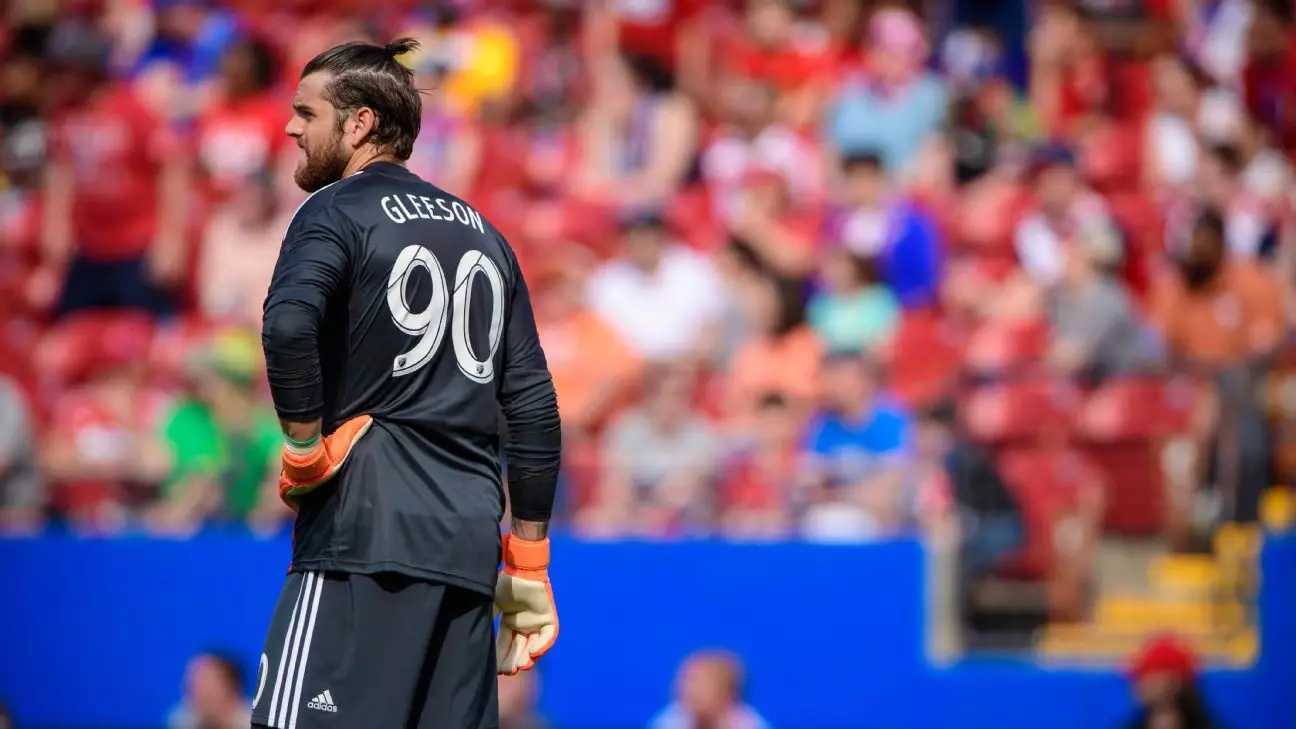In a stunning display of justice, a jury pronounced its verdict in favor of Jake Gleeson, a former Portland Timbers goalkeeper, awarding him over $20 million in his medical malpractice case against Dr. Richard H. Edelson. The ruling, rendered in Oregon Circuit Court, underscores the harrowing implications of medical negligence, exposing a tragic journey that transformed Gleeson from a promising athletic career to a life burdened with chronic pain and loss. At just 34 years old, Gleeson now grapples with a medical legacy of more than 14 surgeries, stemming from a botched procedure aimed at treating stress fractures in both of his legs.
Gleesons’ situation raises disturbing questions surrounding the standards of care and the trust vested in medical professionals. Surgery is always accompanied by inherent risks, but when negligence emerges—especially concerning something as vital as proper sterilization—those consequences become profoundly more dangerous. The assertion that plates used in Gleeson’s surgery weren’t adequately sterilized casts a dark shadow over the surgical environment and indicates possible systemic flaws that victimized not just the athlete but also the ethos of healthcare duty to protect.
A Call for Accountability and Advocacy
Following the jury’s ruling, Gleeson, during a poignant Zoom call, reflected on the six-and-a-half-year ordeal that has enveloped his life, impacting both his physical and emotional state. “It’s been very difficult,” he shared candidly, highlighting the psychological toll intertwined with his physical suffering. The key takeaway from Gleeson’s ordeal is his newfound role as an advocate for patient rights and accountability in the medical field. He emphasizes an essential expectation that comes with consent forms: the duty of healthcare providers to prioritize patient safety and adhere to established guidelines.
Gleeson’s journey offers a compelling narrative that transcends his personal trauma. It serves as a clarion call to athletes and everyday individuals alike to question the efficacy and reliability of the medical systems meant to safeguard their health. By standing up against negligence, Gleeson not only seeks justice for himself but also hopes to pave the way for better patient care, insisting that safety protocols be universally upheld, regardless of one’s professional stature.
The Emotional Journey Through the Trials
The three-week trial was not without its emotional weight, as Gleeson presented his testimony, recounting the physical and mental anguish that enveloped him since that fateful surgery. His struggle embodies a broader issue within the realm of sports medicine—an environment where athletes are often pushed to their limits and may not always receive the best possible care. The emotional testimony from former teammates further underscored the devastation cascading from Gleeson’s plight. When the very fabric of a person’s career unraveled due to lack of adherence to medical protocols, the ramifications extend beyond just one individual—echoing throughout the community of athletes and supporters.
The defense argued against the allegations, citing that the sterilization methods used were deemed sufficient and that surgical infection poses a common risk. While such defenses are an expected part of malpractice litigation, this particular case emphasizes a critical distinction between the accepted risks of surgery and the consequences of malpractice. By unequivocally supporting Gleeson, the jury’s decision reflected a societal acknowledgment of the importance of accountability in healthcare.
The Jurisdiction of Justice: The Aftermath of the Verdict
The jury found Dr. Edelson negligent on multiple fronts including his sterilization techniques. Gleeson was awarded nearly $20.4 million—a sum that includes past and future medical expenses, lost wages, and the immeasurable pain and suffering he has endured. However, challenges remain. Even as the jury rendered a resounding verdict of support, the defendant’s attorney expressed intentions to appeal. This opens a new chapter in the saga, intensifying the public’s interest and the media’s scrutiny surrounding the transparency and quality of medical practices.
One overarching theme of Gleeson’s case is a broader examination of medical protocols in healthcare institutions. Patients, regardless of their backgrounds or professions, deserve the assurance that their well-being is paramount. The ramifications of this case extend beyond compensation for Gleeson; it’s a reminder of the potent responsibility entrusted to medical professionals and the collective advocacy needed to protect that sacred trust.
Through each of Gleeson’s surgeries and tribulations, there exists an unwavering truth: Patients should never be treated as mere statistics in a surgical outcome. As he continues to navigate this tumultuous part of his life, Gleeson’s quest is not just for his own justice, but for the integrity of a system designed to safeguard lives—a reminder that the bond of trust between patient and doctor must never be compromised.


Leave a Reply